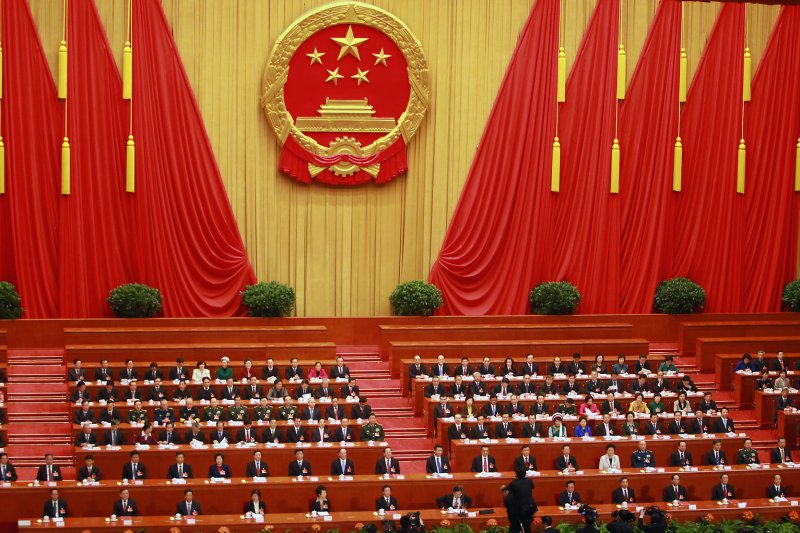The Chinese Communist Party’s English-language newspaper is now featured as a supplement in an Australian newspaper. China has been launching a media offensive to counter negative images of the country overseas. File Photo by Stephen Shaver/UPI |
License Photo
SYDNEY, June 9 (UPI) -- China spends about $10 billion a year on propaganda campaigns, and Beijing has been moving swiftly into different markets where the country is playing an influential role in the local economy.
Chinese media policy is bearing fruit in key countries like Australia, where one of the country's leading newspapers, the Sydney Morning Herald, now includes a supplement from China Daily, the Financial Times reported Thursday.
China Daily is an English-language publication issued by the Chinese Communist Party. Beijing's media affiliates have struck similar deals with the Washington Post, the Daily Telegraph in London and Le Figaro in Paris.
China's charm offensive into media comes at a time when traditional news organizations are struggling with cash flow, according to the report.
Australia's Fairfax media newspapers ran an inaugural issue of China Watch that supported China's position on island-building and sovereignty claims in the South China Sea, and Beijing has made some progress into shifting the focus of Chinese-language media in Australia with investments, free content and training for journalists.
Back home, the Chinese Communist Party celebrates the deals as a "victory for its overseas propaganda," according to John Fitzgerald, a professor at Swinburne University of Technology in Melbourne.
David Shambaugh, professor at George Washington University, said China spends $10 billion annually on overseas propaganda deals, far outspending the United States, which allocated $666 million toward public diplomacy in 2014.
But that's because "Beijing feels its international reputation does not match up" with its new economic power, and feels it's confronting a biased Western media, according to Wanning Sun, professor at University of Technology Sydney.
China's push for improved public diplomacy also comes at a time when the Australian public is more cognizant of China's increasing role in the region.
According to a University of Sydney's U.S. Studies Center survey, 69 percent of Australians agreed China was already a dominant force, while support for a strong U.S. role was lower than in South Korea, Indonesia, Japan and even China, The Guardian reported.















